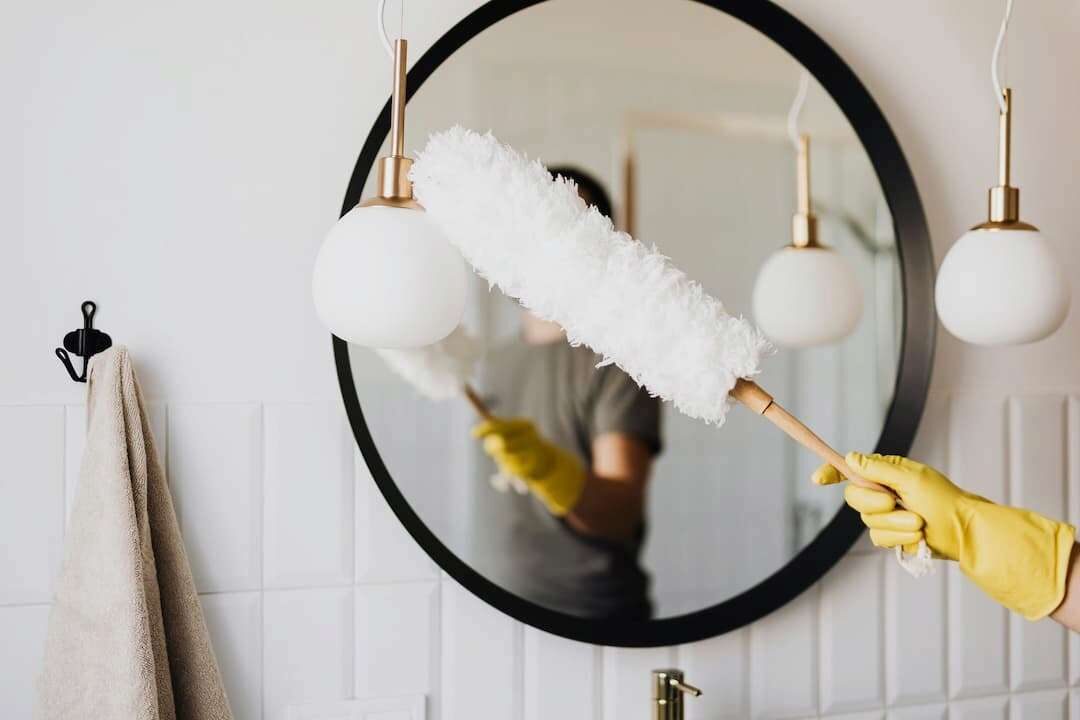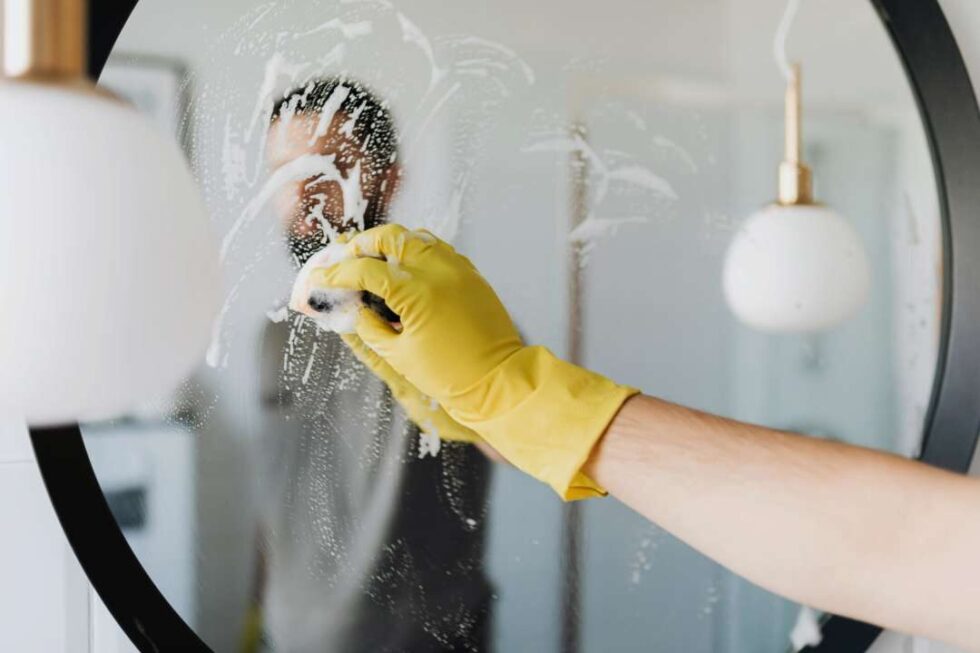What are the best ways to clean mirrors and glass without streaks in Germany

Cleaning mirrors and glass may look simple, but in practice many households in Germany struggle with streaks, haze and fingerprints that return just hours after cleaning. The reasons are usually not dirt itself, but unsuitable cleaning products, the wrong cloth, or mistakes in the cleaning process. While traditional sprays are widely available in German supermarkets and drugstores, consumers increasingly compare eco-friendly alternatives and domestic recipes. A proper choice of tools and methods can save both time and money, and also protect sensitive mirror coatings from scratches. Clean glass surfaces are more than aesthetics – they make rooms brighter and larger. To achieve perfect clarity, it is essential to understand which solutions are truly effective, as reported by G.business.
Choosing the right cleaning products
In Germany, shelves are full of sprays and concentrates for windows, mirrors and glass. The difference in results depends not only on brand reputation but also on chemical composition. Alcohol-based cleaners are the most effective against greasy fingerprints because they evaporate quickly without leaving streaks. Ammonia or vinegar-based products work well in hard-water regions, such as Berlin or Munich, where limescale marks often appear. Abrasive products, however, should be strictly avoided since they scratch delicate coatings and create permanent haze. Eco-friendly cleaners are increasingly popular in Germany; although they are more expensive, they are biodegradable and safe for children and pets. Average prices vary between €2 and €5 for standard sprays and up to €7 for certified organic products.
Examples of popular glass cleaners in Germany (2025):
- Clin Windows & Glass – €2.50–€3.00 / 500 ml (Rewe, Edeka)
- Sidolin Streifenfrei – €3.20–€3.50 / 500 ml (DM, Rossmann)
- Frosch Spiritus Glasreiniger – €3.50–€4.50 / 500 ml (DM, Müller)
- Ecover Window Cleaner – €4.00–€5.00 / 500 ml (Bio Company)
- Denkmit Glasreiniger – €1.80–€2.00 / 500 ml (DM, Kaufland)
Tools for perfect glass care
Even the most expensive spray will not work without the right tools. In German households, the most common mistake is using paper towels, which leave lint and consume more product. Professional cleaners recommend microfiber cloths – they absorb up to seven times their weight in water, are reusable and leave no streaks. A pack of three microfiber cloths costs around €4–€6 in German stores. For large windows or balcony doors, rubber squeegees are indispensable; the price starts at €8–€12 in Obi or Bauhaus. Telescopic handles help reach high bathroom mirrors or skylights. Recently, polishing gloves made from microfiber became trendy in Germany – they cost about €15–€20 and are very effective for quick daily touch-ups. Investing once in durable tools pays off, because they last for years and significantly reduce cleaning time.
Recommended tools in Germany:
- Microfiber cloths – from €4 (DM, Rossmann)
- Rubber squeegees – €8–€12 (Obi, Bauhaus)
- Telescopic window brushes – €20–€30 (Hornbach, Toom)
- Polishing gloves – €15–€20 (Amazon.de, Real)
- Non-abrasive sponges – €2–€3 per pack (Aldi, Lidl)
Technique for streak-free cleaning
The cleaning process itself determines whether the glass will shine or remain covered with streaks. In Germany, many people spray too much liquid directly on the surface, which causes drips and residues. The correct method is to apply the cleaner on a cloth, not the mirror. Start by dusting the surface with a dry cloth to remove particles. Then clean from top to bottom with smooth vertical motions, followed by diagonal strokes for a final polish. Professionals often recommend the “two-cloth method”: one damp with cleaner, the other dry for finishing. Hard stains like toothpaste or grease should be pre-treated with diluted vinegar. After finishing, always check the glass from different angles under the light. This simple routine reduces cleaning time and ensures long-lasting shine.
Step-by-step streak-free cleaning:
- Wipe surface with a dry cloth.
- Spray cleaner on the cloth, not directly on glass.
- Clean top to bottom with vertical strokes.
- Repeat with diagonal movements.
- Use a second dry microfiber for polishing.
- Inspect under side light for hidden streaks.
- Re-treat difficult stains with vinegar solution.
Eco-friendly and homemade solutions
In German households, natural methods remain popular, especially among families avoiding strong chemicals. Vinegar mixed with water (1:1) is a classic remedy against limescale and grease; a liter of vinegar costs about €0.60–€1.00 in supermarkets like Aldi or Lidl. Lemon juice also works as a natural shine booster – fresh lemons cost €2–€3 per kilogram. Baking soda, priced around €1.50 for 500 g, is suitable for stubborn stains when mixed into a paste. Other less common but effective methods include using cooled black tea or potato juice for polishing. Eco-brands such as Frosch or Ecover also offer certified cleaners; though more expensive (€4–€5 per bottle), they combine environmental benefits with high cleaning efficiency. Germans appreciate these solutions because they are inexpensive, safe and align with sustainability trends.
Popular eco and homemade methods in Germany:
- Vinegar + water (1:1) – €0.70 per liter solution
- Lemon juice + water (2 tbsp per liter) – ~€0.50 per use
- Baking soda paste – ~€0.30 per application
- Black tea infusion for polishing – ~€0.20 per glass
- Potato juice for dull glass – ~€0.40 per portion
Mistakes that cause streaks
Why do streaks appear despite thorough cleaning? The main reason is incorrect technique and poor product choice. In Germany, many people still use newspapers – a traditional method from the past, but modern printing ink leaves dark marks. Another mistake is cleaning in direct sunlight: the liquid evaporates too fast and leaves residue. Using old greasy cloths also spreads dirt instead of removing it. Paper towels are another problem, as they shed lint and increase costs. Finally, applying too much cleaner makes surfaces sticky and attracts dust. These errors not only waste time but also damage the visual effect of clean rooms. Awareness of these pitfalls is essential to achieve professional results at home.

What to avoid when cleaning glass:
- Spraying too much cleaner
- Using paper towels
- Cleaning under direct sunlight
- Old greasy cloths
- Newspapers with ink residue
- Abrasive sponges or powders
Comparison of glass cleaners in Germany
For German consumers, price and availability are decisive. While drugstore brands like Sidolin or Denkmit dominate, eco-brands grow steadily. The average price range for a 500 ml cleaner is €2–€4, while eco options reach €5–€6. Discounters such as Aldi and Lidl often sell private-label products for under €2, which are surprisingly effective. The table below compares the most common options with their price and features in 2025.
| Brand | Average Price | Features | Where to buy |
|---|---|---|---|
| Clin Windows & Glass | €2.50–€3.00 | Fast evaporation, fresh scent | Rewe, Edeka |
| Sidolin Streifenfrei | €3.20–€3.50 | Anti-static effect | DM, Rossmann |
| Frosch Spiritus | €3.50–€4.50 | Eco, streak-free | DM, Müller |
| Ecover Window Cleaner | €4.00–€5.00 | Natural ingredients | Bio Company |
| Denkmit Glasreiniger | €1.80–€2.00 | Affordable, effective | DM, Kaufland |
Daily tricks for long-lasting cleanliness
Keeping mirrors and glass streak-free is easier with a few everyday habits. Quick wiping every few days prevents dirt from building up. Anti-static sprays, costing around €3–€4, reduce dust accumulation. In bathrooms, it is essential to ventilate after showers to avoid condensation marks. In kitchens, protective sprays against grease are recommended – they cost around €5–€7 and are sold in stores like Obi or Amazon.de. Polishing gloves are a fast way to refresh surfaces without liquids, while diluted vinegar can serve as an emergency solution. Adopting these habits means that thorough cleaning is required less often, saving both time and money.
Practical daily tips:
- Wipe mirrors briefly every 2–3 days
- Use anti-static sprays once a week
- Ventilate bathrooms after showers
- Apply protective sprays in kitchens
- Polish with microfiber gloves
- Refresh with vinegar water when needed
Final recommendations for spotless mirrors and glass
In Germany, spotless glass and mirrors are not only about appearance but also about lifestyle. Clean surfaces make apartments look brighter and larger, which is especially valued in small urban flats. Investing in proper tools and using the right techniques can significantly reduce cleaning time. Combining professional products with eco-friendly homemade solutions ensures both efficiency and sustainability. With regular maintenance and avoidance of common mistakes, it is possible to keep glass streak-free for weeks. Ultimately, choosing the right cleaner in German stores and adopting a few simple habits is enough to make streaks a thing of the past.
Stay connected for news that works — timely, factual, and free from opinion — and insights that matter now: What are the 10 proven tips to remove bad smells at home